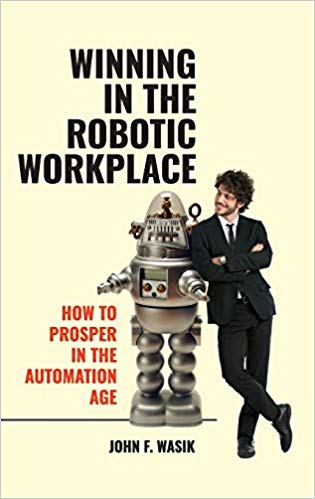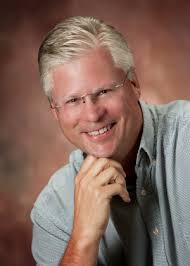
 |
Journalist and Author JOHN F. WASIK =ROBOTS= are COMING to TAKE YOUR JOBS Here's How to Win Tuesday, January 21, 2020 5:30 - 8:30 pm The Lounge at Iwan Ries 19 South Wabash Av. |
|
|
Cocktails at 5:30, with the presentation at 6:00 for about thirty minutes, followed by Q&A and general cocktail conversation. Reservations with EventBrite Event Support are required. (Select the green "Tickets" link.) |
||
|
John Wasik
is well known to the Cigar
Society for his previous talks on being a "Road
Scholar" for the Illinois Humanities Council; on
Tesla and creativity; on John Maynard Keynes's
personal investment strategies; and, way back at
the Tower Club, on Samuel Insull and Thomas
Edison. About his most recent book, Winning
in the Robotic Workplace, he writes:
I’ll be blunt: Millions, if not tens
of millions of jobs, are going away due to
automation. It’s not some paranoid
fantasy about robots taking over. It’s
happening now and it's accelerating. In
researching and writing my book, Winning
in the Robotic Workplace, I found
that automation is being integrated into every
industry and is being adopted on a mass scale
from major tech companies to legacy industries
such as warehousing and logistics. Here are
some highlights:
What can we do to offset the rise of
the robots? That is what my book is about. Those who can mix technical knowledge
with a broad range of liberal arts education
will likely fare well. You’ll need to know
history, ethics, science, literature and the
skills to integrate this knowledge to the task
at hand. The humanities give you a broad
perspective and knowledge base. |
|
||||
Book Reviews
Rather than so many neo-Luddite laments, [Wasik's] book promises to equip us not just to "interface" with these new AI machines, but rather to direct them to ends that we desire. The new automation is truly liberating—and thus not a threat, but an aid to human flourishing. And this book points in the direction of the right preparation—a liberal arts education that needs to be continuing and lifelong. Liberal education is best for adults, who can synthesize these new tools with past experiences, creating new and innovative ideas. ---Fred W Beuttler, Assoc. Dean, Graham School of Continuing Liberal and Professional Studies, University of Chicago Automation will drastically alter the workplace of the future. The number of processing jobs will shrink, but the ability to analyze, interpret, and think creatively will be even more prized. John Wasik's insightful book, Winning in the Robotic Workplace, will help you get on the winning side of this powerful trend. ---Don Phillips, Managing Director, Morningstar Technology has been replacing jobs for over 100 years, but the pace of change today towards increased automation is alarming. Winning in the Robotic Workplace is an essential read if you want to understand who will win and lose in this new world. ---Travis Briggs, Chief Executive Officer, ROBO Global |
|||||
About the Cigar Society of Chicago
ONE OF THE OLDEST
AND greatest traditions of the city clubs of Chicago is
the discussion of intellectual, social, legal, artistic,
historical, scientific, musical, theatrical, and
philosophical issues in the company of educated, bright,
and appropriately provocative individuals, all under the
beneficent influence of substantial amounts of tobacco
and spirits. The Cigar Society of Chicago
embraces this tradition and extends it with its Informal
Smokers, University Series lectures,
and Cigar Society Dinners, in which cigars,
and from time to time pipes and cigarettes, appear as an
important component of our version of the classical
symposium. To be included in the Cigar Society's
mailing list, write to the secretary at
curtis.tuckey@logicophilosophicus.org.

